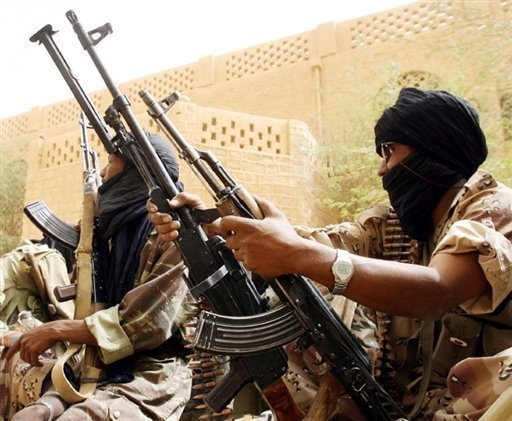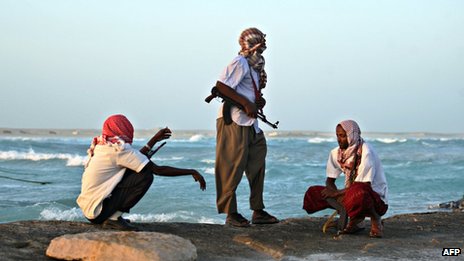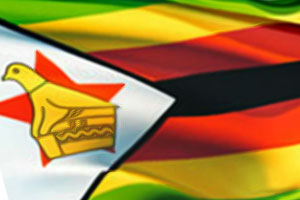Once considered a quiet front in the global “War on Terror,” the Sahel region of North Africa has become an area of increasing concern for Western governments. Emboldened by mercenaries and heavy weapons crossing out of Libya, al-Qaeda in the Islamic Maghreb (AQIM) has engaged in a spree of kidnappings and attacks, prompting Canada, the US, and the EU to forge closer security partnerships with the national governments in the region.
A rebranding of the Algerian Islamist insurgency formally known as the Salafist Group for Preaching and Combat, AQIM has become the largest of the al-Qaeda offshoots. The group has raised an estimated $130 million in under a decade by kidnapping over 50 Westerners in neighbouring countries and holding them for ransom in northern Mali. Canadian diplomat, and UN Special Envoy to Niger, Robert Fowler was held for 130 days and released in 2009 as part of an alleged prisoner swap with the Malian government. AQIM has also engaged in attacks on Western targets in the region, most notably the bombing of the UN office in Algiers in 2007. Security experts warn that the group has tripled in size since 2006, and that its “growing footprint, once limited to Algeria, now stretches from one end of the Sahara desert to the other, from Mauritania in the west to Mali in the east.”
Mokhtar Belmokhtar, one of AQIM’s leaders, stated that the group “has been one of the main beneficiaries of the revolutions in the Arab world,” particularly through its acquisition of “Libyan armaments.” Though the militant leader refused to further disclose the arsenal the group has obtained, Robert Fowler contends that AQIM are now equipped with “enormous amounts of … sophisticated weapons such as 20,000 [shoulder-mounted] SA-24 missiles, heavy mortars, heavy artillery and thousands of anti-tank mines.” Revolution in Libya, warns British Foreign Secretary William Hague, has also provided AQIM with an influx of potential recruits in the form of returning mercenaries. The worst case scenario for regional and Western governments is the possibility of a pan-Sahel Islamist insurgency that links AQIM with like-minded Boko Haram in Nigeria and al-Shabaab in Somalia. Counter-terrorism experts have further speculated that AQIM is developing “an operational capability which could threaten Europe.”
Seeking to prevent the Sahel from becoming a ‘new Somalia,’ Western governments have stepped up security capacity-building efforts in the region. The most active player is the US, which began offering counter-terrorism assistance to Sahel governments shortly after 9/11. Training efforts are the strongest in the weak states of Mali, Mauritania, and Niger, where Washington has provided operational and logistical support to national armies, trained and equipped special forces units, and boosted indigenous intelligence gathering capacity. Assistance has also been provided for humanitarian projects and anti-extremist initiatives in order to combat the root causes of militancy. Rather than deal a crushing blow to AQIM, the global intelligence firm STRATFOR notes that the American focus is on making the militants area of operation more inhospitable by strengthening local authorities.
Ottawa too, has recently engaged in North African capacity building. Small teams from the Canadian Special Operations Regiment (CSOR) have been dispatched to Mali to provide training to the country’s military. The mission has a non-combat mandate, focusing on training in communications, operations planning, medical aid and military-civilian relations. The CSOR has been cycling teams of approximately 15 soldiers in and out of Mali; one team conducted special forces training in the country’s north this summer, while another is currently engaged in counter-terrorism and officer training in the nation’s capital, Bamako.
Responding to what William Hague has called “an increased threat to our security,” the EU is also planning to send a team of police and security experts to assist authorities across the Sahel region. Aside from security and police training, the EU plan calls for economic and political support and infrastructure development. Amid warnings of an impending drought, the European Commission has increased humanitarian funding to the Sahel by €10m to a total of €55m this year. France, which maintains colonial linkages to the Sahel states, has taken a more activist approach than the rest of the Union—putting boots on the ground to assist Mauritanian special forces with cross-border raids into Mali.
In the aftermath of the Libyan operation, the importance of a small Western footprint in the Sahel has been acknowledged. Given that troop deployments would likely breed distrust among local populations, counter-terrorism expert, Professor Rohan Gunaratna, cautions that Western governments “must advise, assist and guide the people to build their own security.” The need for a more coordinated international strategy has also been recognized. Jerome Spinoza, Head of the African Bureau in the French Ministry of Defense, has stated that all interested countries need to better synchronize their policies with regional and local actors. “The EU’s strategy needs to be more concrete,” Spinoza opined. Security operations must also take into account “rapid population growth, weak and ineffective governance, inter-state tensions, poor access to education and employment, and increasingly acute food supply problems.”
The rise of AQIM represents a concrete security threat to the Sahel region and beyond, but for now it will be fought primarily with ‘soft power.’
Further Reading: France ‘to punish’ al-Qaeda killers; Candy, cash – al-Qaeda implants itself in Africa; Growing threat of al-Qaeda in North Africa prompts EU action; Canadian special forces mentor Mali’s military; Al-Qaeda offshoot hopes to turn Africa’s Sahel region into a ‘new Somalia’
Disclaimer: Any views or opinions expressed in this article are solely those of the author and do not necessarily represent those of the NATO Council of Canada.




